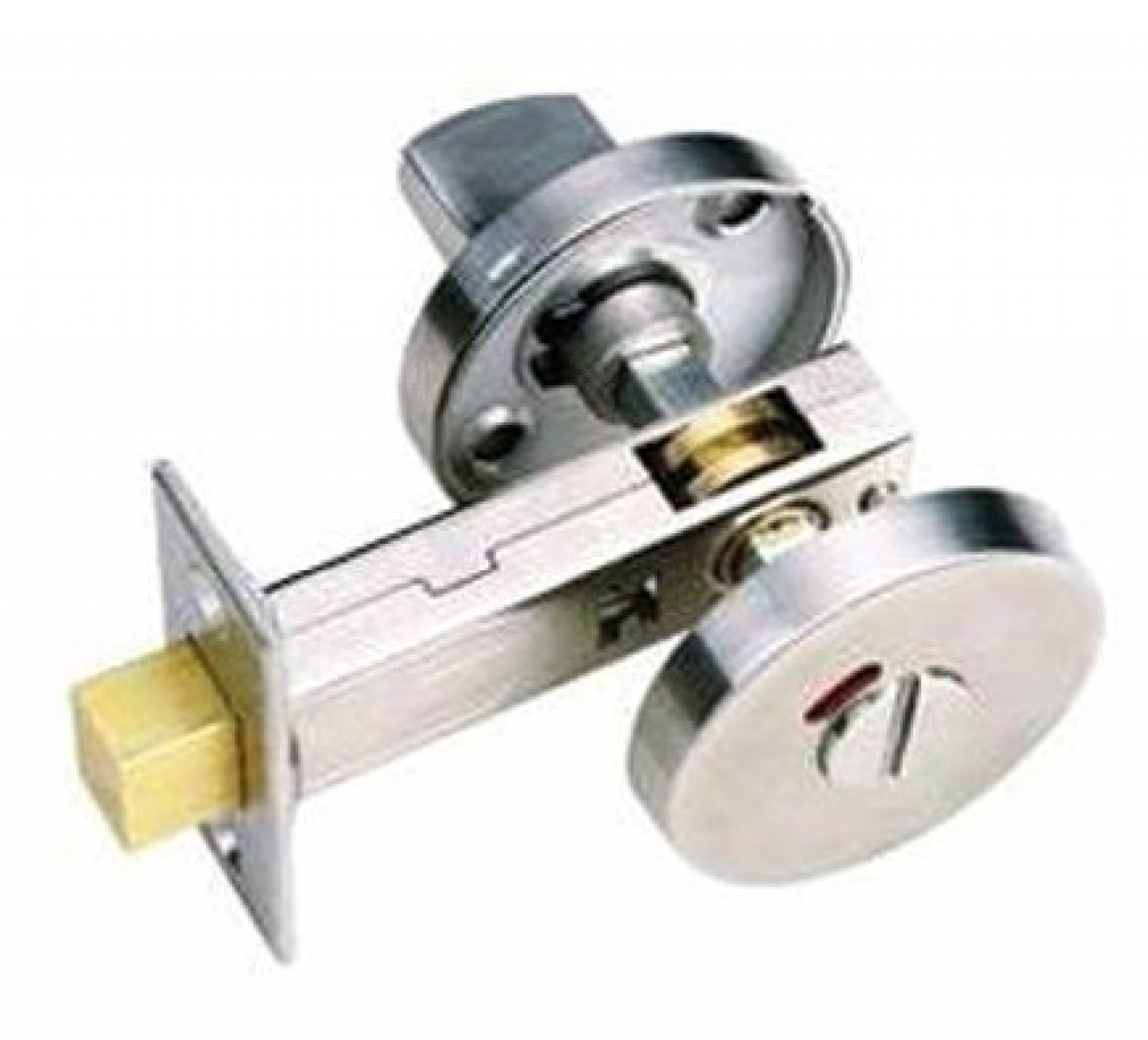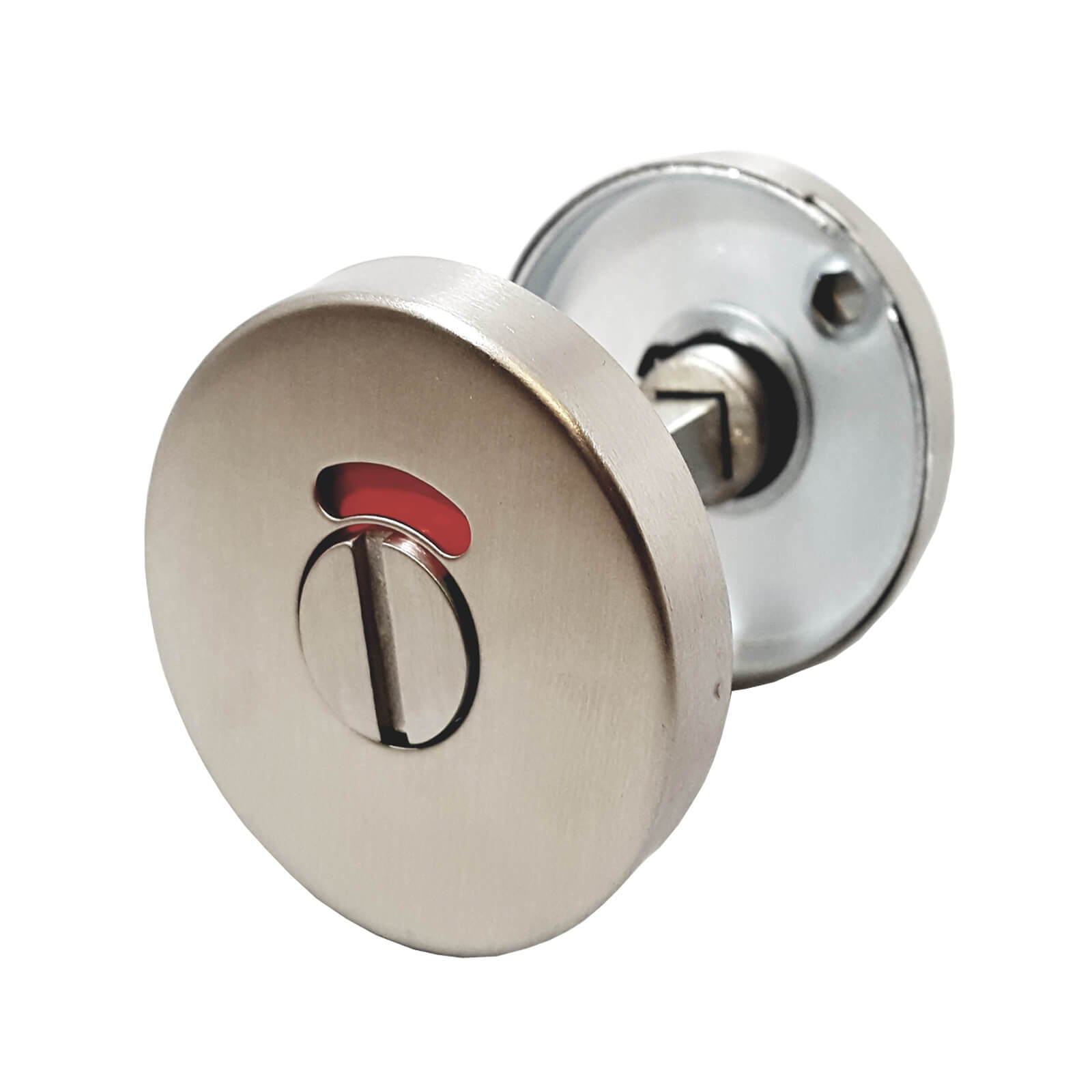Types of Plastic Bathroom Door Locks

Plastic bathroom door locks are a common and affordable option for residential and commercial bathrooms. They offer a balance of functionality, durability, and cost-effectiveness. These locks are typically made from various types of plastic, each offering unique properties and benefits.
Types of Plastic Bathroom Door Locks
Plastic bathroom door locks are generally categorized based on their design and functionalities. These categories offer a range of options for various needs and preferences.
- Lever Handle Locks: These locks feature a lever handle that is easy to operate, making them suitable for people with limited dexterity or mobility issues. They are commonly used in residential bathrooms and are available in various styles and finishes to complement different bathroom designs.
- Privacy Locks: These locks are designed to provide privacy and security within the bathroom. They typically feature a latch that can be locked from the inside, preventing entry from outside. Privacy locks are ideal for personal bathrooms or those with shared access.
- Deadbolt Locks: Deadbolt locks offer a higher level of security compared to privacy locks. They feature a bolt that extends into the strike plate, providing a more secure lock. Deadbolt locks are often used in bathrooms that require additional security, such as public restrooms or those in high-traffic areas.
Materials Used in Plastic Bathroom Door Locks
Plastic bathroom door locks are manufactured using various types of plastics, each possessing distinct properties that affect their performance and durability.
- Acrylonitrile Butadiene Styrene (ABS): ABS is a strong and durable plastic that is commonly used in bathroom door locks. It is resistant to impact and chemicals, making it suitable for high-traffic areas. ABS locks are typically more expensive than those made from other types of plastic.
- Polypropylene (PP): PP is a lightweight and flexible plastic that is often used in bathroom door locks. It is resistant to chemicals and moisture, making it suitable for use in bathrooms. PP locks are typically more affordable than ABS locks but may not be as durable.
- Polyvinyl Chloride (PVC): PVC is a versatile and affordable plastic that is used in a wide range of applications, including bathroom door locks. It is resistant to water and chemicals, making it suitable for use in bathrooms. PVC locks are typically less durable than ABS or PP locks.
Comparison Table of Plastic Bathroom Door Locks
The following table compares the different types of plastic bathroom door locks based on their key features:
| Feature | Lever Handle Locks | Privacy Locks | Deadbolt Locks |
|---|---|---|---|
| Material | ABS, PP, PVC | ABS, PP, PVC | ABS, PP |
| Functionality | Easy to operate | Privacy and security | High security |
| Durability | Moderate | Moderate | High |
| Price Range | Low to moderate | Low to moderate | Moderate to high |
Benefits of Using Plastic Bathroom Door Locks
Plastic bathroom door locks have gained popularity in recent years, offering a compelling alternative to traditional metal locks. These locks are not only cost-effective but also lightweight and resistant to corrosion, making them an ideal choice for various bathroom settings.
Advantages of Plastic Bathroom Door Locks
Plastic bathroom door locks offer several advantages over their metal counterparts, making them a practical and durable option for various bathroom environments.
- Cost-effectiveness: Plastic locks are generally more affordable than metal locks, making them a budget-friendly option for homeowners and businesses. This cost-effectiveness is particularly attractive for large-scale projects or when replacing multiple locks.
- Lightweight Nature: Plastic locks are significantly lighter than metal locks, making them easier to install and handle. This is especially beneficial in situations where heavy lifting or intricate installation is required.
- Corrosion Resistance: Plastic is inherently resistant to corrosion, making it an ideal choice for humid and wet bathroom environments. Unlike metal locks, plastic locks will not rust or deteriorate over time, ensuring their longevity and functionality.
Benefits in Various Bathroom Environments
Plastic bathroom door locks are particularly advantageous in various bathroom environments, where their unique properties provide significant benefits.
- Humid and Wet Conditions: Plastic locks are highly resistant to moisture and humidity, making them ideal for bathrooms that experience high levels of condensation and steam. They are less prone to rusting or deteriorating, ensuring long-lasting performance.
- High-Traffic Areas: In public restrooms or shared bathroom facilities, plastic locks are a robust and reliable option. They can withstand frequent use and abuse, reducing the need for frequent replacements or repairs.
- Cost-Sensitive Projects: For budget-conscious projects or renovations, plastic locks offer a cost-effective solution without compromising on quality or functionality. Their affordability allows for more efficient use of resources and budget allocation.
Real-World Examples of Plastic Bathroom Door Locks
Plastic bathroom door locks have been successfully implemented in various settings, demonstrating their practicality and durability.
- Hotels and Motels: Many hotels and motels have adopted plastic bathroom door locks due to their cost-effectiveness and resistance to corrosion. The high humidity and frequent use in these environments make plastic locks a reliable choice.
- Schools and Universities: Plastic locks are commonly used in school and university bathrooms, where their lightweight nature and durability make them suitable for high-traffic areas and frequent use.
- Hospitals and Healthcare Facilities: Plastic bathroom door locks are also used in hospitals and healthcare facilities, where their resistance to moisture and disinfectants is crucial for maintaining hygiene and safety.
Considerations for Choosing a Plastic Bathroom Door Lock

Selecting the right plastic bathroom door lock requires careful consideration of various factors to ensure it meets your specific needs and preferences. This involves assessing the size of the door, the desired level of security, and aesthetic considerations.
Factors to Consider When Choosing a Plastic Bathroom Door Lock
When choosing a plastic bathroom door lock, several key factors must be considered to ensure a suitable selection.
- Door Size: The lock’s size should be compatible with the thickness of your bathroom door. Measure the door’s thickness before purchasing a lock to ensure a snug fit.
- Security Level: The desired security level for your bathroom door lock is a critical consideration. For basic privacy, a simple latch lock may suffice. However, for enhanced security, a deadbolt lock with a key or a more robust latch lock with a reinforced design might be preferred.
- Aesthetic Preferences: The aesthetic appeal of the lock is important to maintain the overall look of your bathroom. Choose a design and color that complements the existing fixtures and décor.
- Durability: Plastic locks can vary in durability, so it’s essential to choose a lock made from high-quality plastic that can withstand frequent use and potential wear and tear. Look for locks with reinforced components for increased durability.
- Ease of Installation: Some plastic bathroom door locks are designed for easy installation, while others might require more technical expertise. Consider your DIY skills and the complexity of the installation process before purchasing a lock.
- Budget: Plastic bathroom door locks are generally more affordable than their metal counterparts. Set a budget and compare prices from different brands and retailers to find a lock that fits your financial constraints.
Decision Tree for Choosing a Plastic Bathroom Door Lock
The following decision tree can guide you through the process of selecting the most suitable plastic bathroom door lock based on your needs:
- What is the primary purpose of the lock?
- Privacy: Choose a basic latch lock.
- Security: Choose a deadbolt lock or a reinforced latch lock.
- What is the thickness of your bathroom door?
- Standard thickness: Choose a lock designed for standard door thicknesses.
- Non-standard thickness: Choose a lock that can accommodate the specific door thickness.
- What is your desired aesthetic?
- Modern: Choose a sleek and minimalist design.
- Traditional: Choose a classic and timeless design.
- What is your budget?
- Limited budget: Choose a basic plastic lock.
- Flexible budget: Consider a more durable and feature-rich plastic lock.
Comparison of Plastic Bathroom Door Lock Brands
The following table compares various features and specifications of different plastic bathroom door lock brands, enabling you to make an informed decision:
| Brand | Type | Material | Security Level | Features | Price Range |
|---|---|---|---|---|---|
| Brand A | Latch Lock | ABS Plastic | Basic | Easy installation, multiple colors | $10 – $20 |
| Brand B | Deadbolt Lock | Polycarbonate | Enhanced | Keyed entry, reinforced design | $25 – $40 |
| Brand C | Latch Lock | Nylon | Basic | Privacy button, adjustable strike plate | $15 – $30 |
